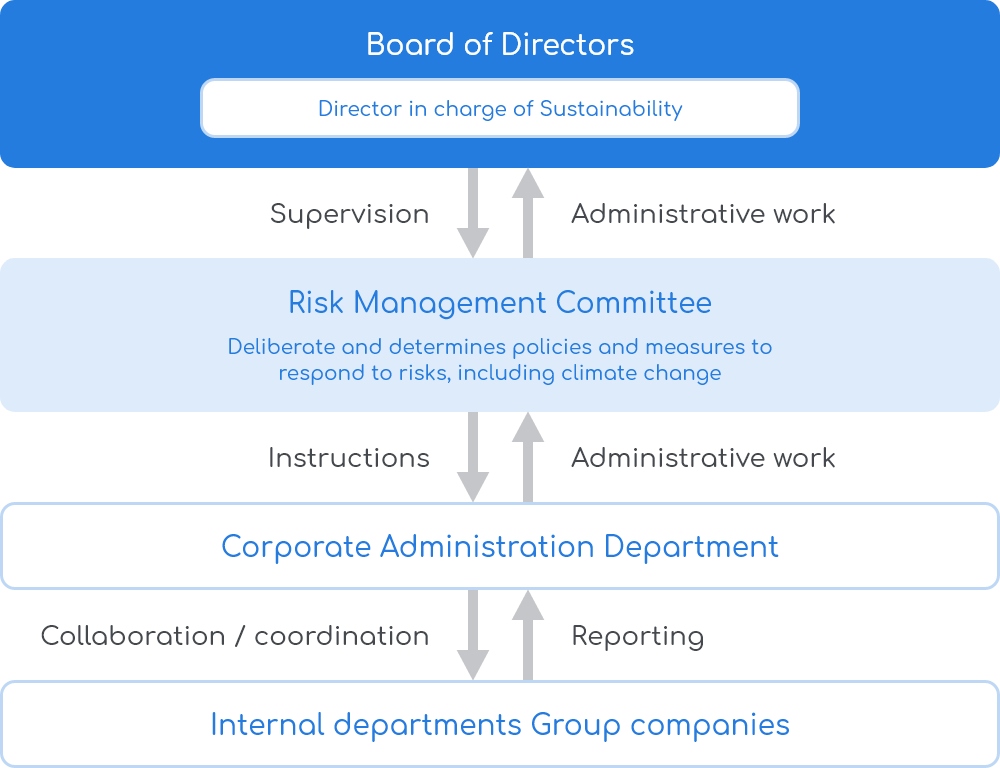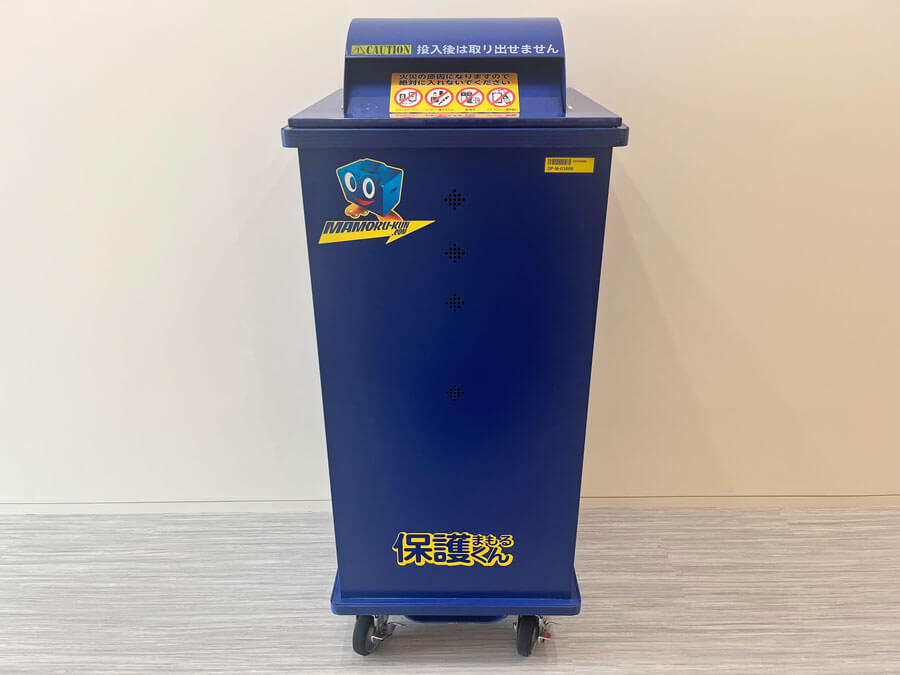Balancing implementation of business and environmental conservation

We regard addressing environmental issues as a material issue in order to create a sustainable society, and are engaged in various measures to balance business operations with environmental conservation. We are strengthening our efforts to combat global warming, which is considered a key factor in climate change, one of the goals of the SDGs.
Information Disclosure Based on the TCFD Recommendations
In response to the growing movement to assess the impact of climate change on business, as ofDecember 2022, we have expressed our support for the recommendations of the Task Force on Climate-related Financial Disclosures (TCFD). Our disclosure of information based on the framework of the TCFD recommendations is summarized below.

- *TCFD Recommendations
A set of recommendations announced in June 2017 by the Task Force on Climate-related Financial Disclosures (TCFD), founded by the Financial Stability Board (FSB) at the request of the G20.
Governance Struc
The President and Representative Director has been appointed as the director in charge of Sustainability.The Risk Management Committee deliberates and considers responses to climate change-related risks and reports the results to the Board of Directors. The Board of Directors gives instructions for improvement and supervises as necessary

Strategy
The COLOPL Group recognizes the impact of climate change on its business operations (risks and opportunities) as follows. Risks, measures, and opportunities have been considered and classified according to two scenarios-- The Below 2 °C scenario, in which the temperature increase can be controlled to around 2 °C, and the 4 °C scenario, in which there is no transition to a decarbonized society and the average temperature rises by around 4 °C.
Below 2 °C scenario
| Perceived risks | Responses | |
|---|---|---|
| Transition risks | Increased business costs due to the introduction of carbon taxes and increased regulatory and disclosure obligations |
・Establishment of measures for decarbonization(energy conservation) ・Prompt and appropriate response to new regulations, etc |
| Changes in investor behavior and values due to environmental changes and climate change | ・Strengthening efforts relating to climate change, such as the TCFD recommendations | |
| Delay in responding to the above risks, resulting in damage to brand value and decline in stakeholder evaluations | ・Continuing and communicating details of sustainability initiatives (green power, paperless operations, etc.) |
4 °C scenario
| Perceived risks | Responses | |
|---|---|---|
| Physical risks | Physical damage to the Group's bases and human damage as a result of the intensification of disasters | ・Regular review of Business Continuity Plans (BCP) |
| Lifestyle changes due to rising average temperatures and increased incidence of infectious diseases | ・Promoting diverse work styles, including remote work |
Opportunities for the Group's business operations
| Positive impact | |
|---|---|
| Oppor tunities |
・Seize new business opportunities in line with major changes in behavior and values ・ Expansion of earnings in areas such as the web metaverse business due to the increase in online events, etc. |
| ・Improve corporate brand image and reputation by implementing the above risk countermeasures and seizing business opportunities |
Risk management
Risks relating to climate change are analyzed and response measures discussed by the Risk Management Committee, which centrally manages group/company-wide risks, under the supervision of the Corporate Administration Department. The Committee formulates response policies and regularly reports relevant risks to the Board of Directors.
Metrics and targets
The COLOPL Group has calculated its CO2 emissions as a metric for managing climate-related risks and opportunities. Results are as follows.
CO2 emissions (scope: Group-wide, units: t-CO2)
| Category | April 2023 - March 2024 | April 2024 - March 2025 | |
|---|---|---|---|
| CO2排出量(t) | Scope1 | 0 | 0 |
| Scope2 | 749 | 712 | |
| Scope3 | 2,207 | 2,235 |
- *Scope 3 emission data refers to emissions from external cloud servers, which are the main emission sources (excluding Group companies). Going forward, we will also consider whether to calculate other Scope 3 categories.
Scope 1: Direct greenhouse gas emissions by the business operator itself
Scope 2: Indirect greenhouse gas emissions resulting from the use of electric power, heat and steam supplied by other companies
Scope 3: Indirect greenhouse gas emissions, which does not fall under Scopes 1 and 2 (emission from other companies associated with the activities of the reporting company)
Environmentally Friendly Initiatives
COLOPL is working to create environmentally friendly offices, with a focus on reducing CO2 emissions
Use of linoleum, a natural material, for flooring
COLOPL uses linoleum--a natural material that is friendly to the global environment--for office flooring and fixtures. Linoleum is both antiviral and carbon-neutral, contributing to the reduction of CO2 emissions.
Promoting paperless operations
We have introduced digital seals on internal and external documents and contracts to promote paperless operations. We also use dedicated recycling boxes ("Mamoru-kun," operated by Nihon Purple Co., Ltd.) for the disposal of internal documents to balance the need for confidentiality and recycling and contribute to limiting deforestation and CO2 emissions.

Using beverage bottles made of recycled PET plastic
The beverage bottles distributed to visitors to COLOPL's offices are recycled PET bottles, made from recycled PET plastic.

Installing WOSH water-recycling, portable hand-washing stands
WOSH--which was installed as one of the measures against COVID-19 and other infectious diseases--is a hand washing stand that circulates and reuses more than 98% of the water it uses. Through measures such as this, we will continue to combat infectious diseases and make efficient use of water resources.

Introduction of green power
In April 2022, we switched part of the electricity used in our new offices to green power derived from renewable energy sources. This is expected to reduce CO2 emissions by approximately 116 tons per year (equivalent reduction effect of approx. 8,300 cedar trees), thereby contributing to limiting global warming, which is considered to be a cause of climate change, and accelerating decarbonization.
- *COLOPL signed a memorandum of understanding with Mitsui Fudosan Co., Ltd., the lessor of Tokyo Midtown-- where COLOPL is located--regarding the "greening" of electric power at Tokyo Midtown with non-FIT, non-fossil fuel certificates